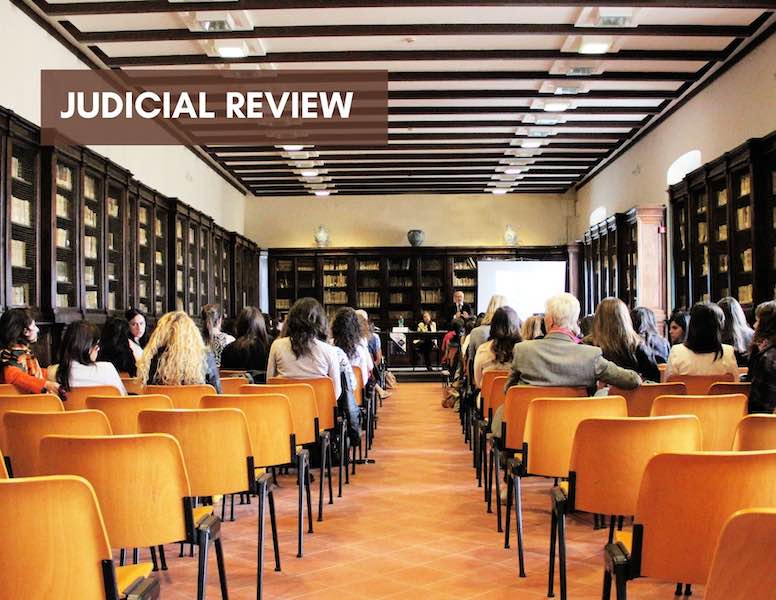Can a Management Corporation or Joint Management Body Commence Judicial Review Proceedings?
by Phoebe Loi Yean Wei & See Hau Tsien ~ 23 October 2024
Introduction
In Datuk Bandar Kuala Lumpur v Perbadanan Pengurusan Trellises & Ors and other appeals [2023] 3 MLJ 829 (“Trellises”), the Federal Court held that Management Corporations (“MC”) and Joint Management Bodies (“JMB”) do not have the capacity or power to file judicial review proceedings either in their own right or on behalf of parcel proprietors.
Judicial review is a procedure by which the Courts undertake a review of the administrative decisions and actions of public bodies or local authorities. It serves as a check and balance for executive and legislative actions by ensuring that these bodies act within the bounds permissible by law.
To proceed with a judicial review application against a public body, the applicant must first establish that they possess the requisite locus standi or standing to sue. The threshold test for establishing this is whether the applicant is “adversely affected” by the decision or action of the public body. This was reiterated and confirmed by the Federal Court in Trellises, which held that an applicant must demonstrate a real or genuine interest in the subject matter of the action to satisfy the “adversely affected” test provided under Order 53 Rule 2(4) of the Rules of Court 2012 (ROC 2012).
In the context of judicial review proceedings initiated to challenge a local authority’s decision to grant planning permissions / development orders, there have been instances where a Management Corporation (“MC”) or Joint Management Body (“JMB”) filed such proceedings on behalf of the proprietors of the condominiums/apartments adjoining the said proposed development. Questions then arise as to whether an MC or JMB has the capacity to represent these proprietors to initiate such a proceeding. This issue was addressed by the Federal Court in the Trellises case.
The Trellises Case – Brief Facts
In the Trellises case, a judicial review application was filed to quash the Datuk Bandar of Kuala Lumpur’s decision to grant a development order for the construction of a mixed development on a public open space (Taman Rimba Kiara). One of the objections taken by the applicants was that the proposed development would destroy Taman Rimba Kiara’s eco-system and significantly increase congestion and pollution levels in the neighbouring residential areas. The first to fifth applicants of the judicial review proceeding are the MCs and JMB of the apartments/condominiums next to Taman Rimba Kiara. An issue arose as to whether the MCs and JMB had the capacity to file the judicial review application.
Do MCs or JMBs have the Capacity to Initiate Judicial Review Proceedings?
In determining the question, the Federal Court explained that MCs and JMBs are statutory corporations established pursuant to Section 39 of the Strata Titles Act 1985 (STA 1985) and Section 17 of the Strata Management Act 2013 (SMA 2013) for the purpose of maintaining and managing the strata properties. These corporations are also collectively in charge of organized functions such as the preservation of their respective strata buildings. Their general powers are explicitly provided under Sections 21(1) and (2), and 59(1) and (2) of the SMA 2013.
The apex court found that a plain reading of Sections 21(1)(i) and 59(1)(i) of the SMA 2013, which provides the power to a JMB or MC “to do such other things as may be expedient or necessary for the proper maintenance and management of the buildings and … common property” permits the MC and JMB to only do what is necessary for the maintenance and management of the buildings and common property. However, this particular provision does not extend to enable MC or JMBs to act in a representative capacity for the purposes of initiating judicial review proceedings on behalf of the proprietors. It was held that there is nothing in written law which expressly allows for JMBs and MCs to do so.
The Federal Court also highlighted that a JMB or MC is not an entity that can be said to be a person “adversely affected” under Order 53 Rule 2(4) of the ROC 2012 when read in the context of the Federal Territory (Planning) Act 1982 as it has no capacity under the law.
However, it’s important to note that while a finding was made that the MCs or JMBs had no capacity to file the judicial review proceedings, the Federal Court expressly held that each of the registered parcel proprietors individually possessed the locus standi or standing to initiate the proceedings as their individual rights or interests have been or will be prejudiced by the proposed development on Taman Rimba Kiara. In this regard, it was held that the judicial review proceedings should instead have been brought via a representative action under Order 15 Rule 12 of the ROC 2012. In support of this, the apex court added that if the law requires something to be done in a particular way, then it should be done in that particular way.
On the flip side, the apex court confirmed that JMBs and MCs can initiate legal proceedings in relation to the common properties of their strata buildings. This is based on the proprietor’s joint entitlement to take proceedings in relation to common properties pursuant to Sections 143(2) and (3) of the SMA 2013. However, it must be emphasized that the power of JMBs and MCs to do so is limited to matters concerning common properties.
Conclusion
The decision of the Trellises case has provided much-needed clarity in relation to the issue of whether JMBs and MCs have the capacity to represent proprietors in judicial review proceedings concerning proposed developments. Such clarity will help towards ensuring lesser judicial review cases being dismissed on the ground of lack of capacity and also ensure that the cases are heard on their full merits.

